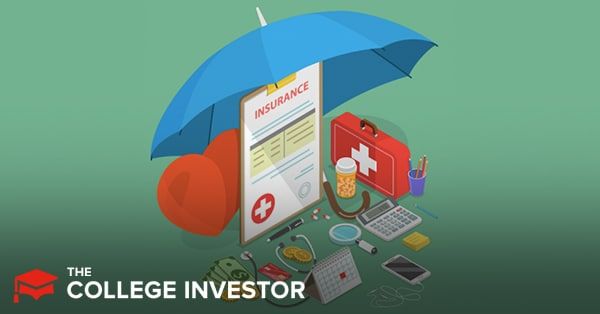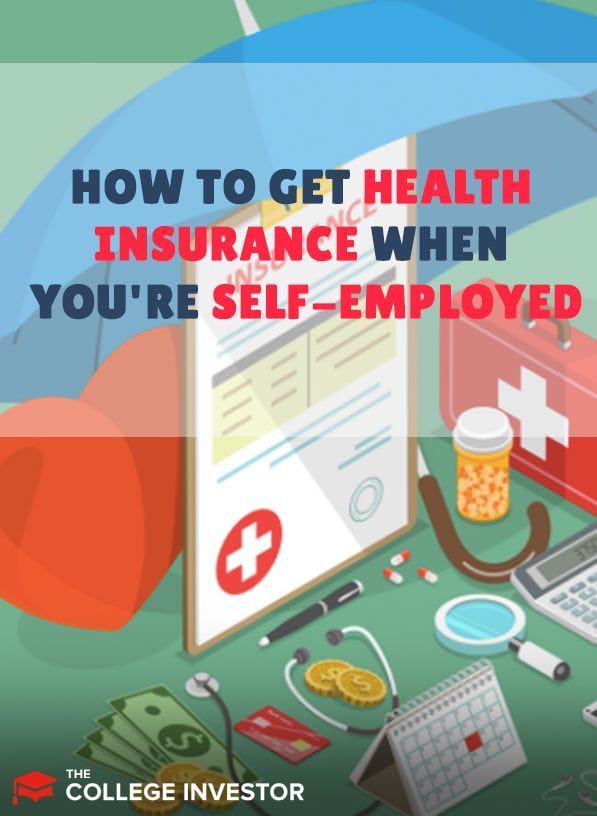
Some freelancers and business owners start independent work out of necessity. Others leap into self-employment when they find that they can earn a lot more by cutting out the “middle-man."
But, in exchange for higher earning potential, you have to find and maintain common employee benefits on your own when you're self-employed. That means you're responsible for finding health insurance coverage that fits your budget and needs.
Losing employer-sponsored health insurance can be one the scariest parts of leaving your day job for a self-employed opportunity. But the good news is that are several ways to save money on self-employed health insurance coverage. Below, we break down eight options worth considering.
Coverage With A Parent
If you're under age 26, you are likely to qualify as a dependent under your parent’s employer-sponsored health plan. Your parents will need to opt for coverage for you. And they may ask you to chip in to help cover the bill. But paying your portion of a family plan may be lower than what you'd pay for individual coverage.
For many young people, especially those who are freelancers, joining a parent’s health insurance will offer the best coverage for the lowest cost. But coverage with a parent isn’t always the right choice. Here are three questions to ask before opting into your parent’s plan.
Coverage With A Spouse
If you're married, and your spouse has employer-sponsored health insurance, you’ll want to look into having them cover you. In general, married people can't qualify for health insurance subsidies if their spouse has employer-sponsored health insurance.
That means you'd pay the full sticker price for a self-employed health insurance on the Marketplace which is very likely to be higher than what you'd pay for an employer-sponsored plan. For these reasons, you may be able to save hundreds or thousands of dollars by joining your spouse's plan.
Marketplace Coverage
Those who don’t qualify for insurance under a parent’s or spouse’s plan should figure out whether they qualify for subsidies on the Health Insurance Marketplace. Generally, freelancers and business owners who have an Adjusted Gross Income (AGI) between 100% to 400% of the federal poverty line will qualify for subsidized self-employed health insurance.
The subsidies can yield significant discounts, especially if you have dependents who also need coverage. A single person (no dependents) living in the lower 48 states who earned between $12,880 - $51,520 can qualify for subsidized health insurance. And a family of 3 that earned between $21,960 and $87,840 would also qualify.
You can find subsidized health insurance plans through HealthCare.gov. Open Enrollment starts in November and runs through December 15th most years. However, you may qualify for special enrollment if you recently lost health insurance coverage (including if you quit your job to start freelancing).
Government Health Insurance
Self-employed workers over age 65 may qualify for Medicare Health Insurance. However, seniors who want supplemental health insurance would need to pay the premiums for those plans out of their own pocket.
Supplemental health insurance plans include special insurance for Medicare Part B and Part D or Medicare Advantage Health Insurance plan. These are typically affordable options for seniors who qualify.
If you’re just starting to freelance, you may have a year or two of very low income. If your earned income is below the federal poverty line, you may qualify for Medicaid, a government-sponsored health insurance plan.
School Or Part-Time Work Insurance
Many people have a side hustle in addition to working a traditional part-time job or finishing school. If either of these situations applies to you, you may have more options.
While you’re in school, you may qualify for low-cost student health insurance plans through your university. Check with your Office of Student Health or Office of Student Affairs to learn more about coverage options at school.
Most employers don’t offer health insurance coverage to part-time employees, but some do. Notably, Starbucks, Costco, and UPS are known for offering coverage for their part-time employees.
Limited Benefits Insurance Plans
Limited Benefits Insurance Plans don't offer “minimum essential coverage” as defined by the Affordable Care Act. However, these are insurance products that help to offset medical and health-related costs exceeding a certain threshold.
These limited benefits insurance plans, offered by companies like Sidecar Health, are specifically designed to fall outside of ACA legislation. While that may sound shady on the surface, these plans often offer much lower premiums. And that can be useful when you're on the hunt for self-employed health insurance.
Since the plans aren't regulated by the ACA, they can use health screenings to vary prices based on risk. Hence, young and healthy people are likely to get a great deal. If you want a standard health insurance plan, visit HealthCare.gov. But if affordability is your top priority, Limited Benefits Insurance Plans are a reasonable alternative to consider.
Profession-Specific Group Coverage
Even though you don't work for a traditional employer, you might still qualify for a group rate on health insurance. That's because there are several professional associations and unions that have negotiated group plans for their members.
One example is the Freelancers Union which offers a variety of health insurance plans in nine states. And members of the National Association for the Self-Employed (NASE) get access to top-tier insurance plans along with vision and prescription drug discounts and a Health Savings Account (HSA).
No matter what you do for a living, there's probably an association or union that's dedicated to workers in your industry. And if the organization that serves your profession offers attractive health insurance plans, that alone might it make worth joining.
International Health Insurance
If you spend 330 or more days outside of the United States each year, you're exempt from having to buy U.S. health insurance. “Digital nomads” or those who have taken up residence outside of the U.S. may qualify for national health insurance coverage in their new country of residence.
These plans will typically cost less than equivalent US-based health plans, even for the same coverage. Those who qualify may feel comfortable forgoing any form of private health insurance plan.
Before dumping your private insurance plan, consider consulting a local specialist who can help you buy a local insurance plan or help understand the terms of qualifying for coverage under the national program. The last thing you want to do is drop insurance only to find you aren’t covered abroad.
Health Care Sharing Organizations
Health care sharing groups don't actually offer insurance. Instead, they allow individuals to share health costs. Members of these organizations will pay monthly shares (like an insurance premium), and they will submit medical bills directly to the organization. The organization or its members will pay those bills.
In the United States, there are 6 large health-sharing ministries, all of which have Christian affiliations. From a financial perspective, these major health sharing ministries have strong balance sheets and long track records of paying claims. And, in many cases, their monthly costs may be significantly lower than traditional self-employed health insurance.
One of the most popular health care sharing ministry is Medi-Share. With almost thirty years of history to prove it, monthly costs with Medi-Share are often less than 50% lower than insurance.
However, these organizations often require members to agree to certain lifestyle and belief covenants. Any injury or illness that is due to living outside of the agreements may not be covered by the health ministry. This is a big risk that people should consider before opting for a health-sharing ministry.
Some lesser-known organizations, such as Knew Health, are non-faith-based. But the downside with choosing one of these newer groups is that they're long-term financial viability may still be uncertain.

Robert Farrington is America’s Millennial Money Expert® and America’s Student Loan Debt Expert™, and the founder of The College Investor, a personal finance site dedicated to helping millennials escape student loan debt to start investing and building wealth for the future. You can learn more about him on the About Page or on his personal site RobertFarrington.com.
He regularly writes about investing, student loan debt, and general personal finance topics geared toward anyone wanting to earn more, get out of debt, and start building wealth for the future.
He has been quoted in major publications, including the New York Times, Wall Street Journal, Washington Post, ABC, NBC, Today, and more. He is also a regular contributor to Forbes.
Editor: Clint Proctor Reviewed by: Claire Tak
